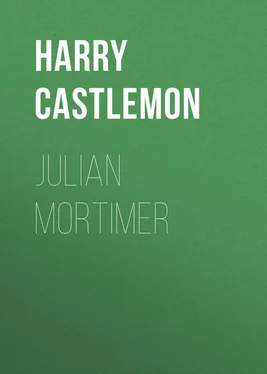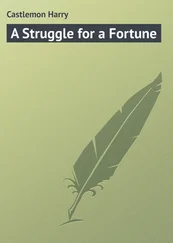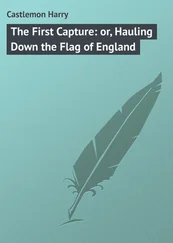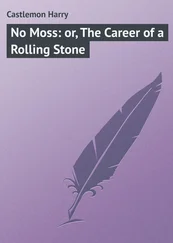Harry Castlemon - Julian Mortimer
Здесь есть возможность читать онлайн «Harry Castlemon - Julian Mortimer» — ознакомительный отрывок электронной книги совершенно бесплатно, а после прочтения отрывка купить полную версию. В некоторых случаях можно слушать аудио, скачать через торрент в формате fb2 и присутствует краткое содержание. Жанр: foreign_prose, foreign_language, на английском языке. Описание произведения, (предисловие) а так же отзывы посетителей доступны на портале библиотеки ЛибКат.
- Название:Julian Mortimer
- Автор:
- Жанр:
- Год:неизвестен
- ISBN:нет данных
- Рейтинг книги:4 / 5. Голосов: 1
-
Избранное:Добавить в избранное
- Отзывы:
-
Ваша оценка:
- 80
- 1
- 2
- 3
- 4
- 5
Julian Mortimer: краткое содержание, описание и аннотация
Предлагаем к чтению аннотацию, описание, краткое содержание или предисловие (зависит от того, что написал сам автор книги «Julian Mortimer»). Если вы не нашли необходимую информацию о книге — напишите в комментариях, мы постараемся отыскать её.
Julian Mortimer — читать онлайн ознакомительный отрывок
Ниже представлен текст книги, разбитый по страницам. Система сохранения места последней прочитанной страницы, позволяет с удобством читать онлайн бесплатно книгу «Julian Mortimer», без необходимости каждый раз заново искать на чём Вы остановились. Поставьте закладку, и сможете в любой момент перейти на страницу, на которой закончили чтение.
Интервал:
Закладка:
“Sartin thar is. I’ve seed that copper-colored face of his’n peepin’ over that rock ever since we’ve been here. If he was within good pluggin’ distance all the news he would carry back to his friends wouldn’t do ’em much good, I reckon.”
As the trapper spoke he pointed toward the opposite side of the gorge. Julian looked in the direction indicated, closely scrutinizing every rock and tree within the range of his vision, but nothing in the shape of an Indian’s head could he see. His eyes were not as sharp as those of the guide.
“Never mind,” said Silas, “you’ll see plenty of ’em afore mornin’, an’ they’ll be closer to you than you’ll care to have ’em. But you needn’t be any ways oneasy. They won’t hurt you. It’s white men that you’ve got to look out fur.”
“White men?” echoed Julian.
“Sartin. Thar’s two persons in the world – an’ I can lay my hand on one of ’em in less’n five minutes – who would be willin’ to give something nice if they could get hold of you. I know a heap more about you than you think I do.”
“You have hinted something like this before, Silas, and I don’t know what you mean. I wish you would explain yourself.”
“I hain’t got no time now,” replied the guide, shouldering his rifle and walking briskly up the road. “Keep your eyes open, an’ don’t go out of the camp till I get back. Don’t forget what I told you about them wagons nuther.”
The trapper quickly disappeared around a bend in the road, and Julian once more directed his gaze across the gully and tried in vain to discover the hiding-place of the spy. He began to feel timid now that he was alone. The thought that there were hostile Indians all around him, and that one of their number was concealed almost within rifle-shot of him, watching every move he made, was by no means an agreeable one. His first impulse was to put spurs to his horse and make the best of his way back to the train; and he probably would have done so had he not at that moment become aware that the train was coming to him. He heard the rumbling of the wheels and the voices of teamsters below him, and the familiar sounds brought his courage back to him again. He remained at his post until the foremost wagons came in sight, and then proceeded to carry out the instructions Silas had given him.
CHAPTER II
JULIAN HEARS SOMETHING
IN HALF an hour the preparations for the night were all completed, and Julian surveyed the camp with a smile of satisfaction. There were twenty wagons in the train, and of these two barricades had been made, one at the upper and the other at the lower end of the cliffs, as the guide had directed. The vehicles had been drawn close together, and were fastened to one another by chains so that they could not be easily moved from their places. The space between the wheels was blocked up with plows, harrows, stoves, bedsteads and chairs, thus rendering it a matter of some difficulty for any one to effect an entrance into the camp.
While this work was being performed the shadows of twilight had deepened into the gloom of night, and now all objects outside the circle of light made by the camp-fires were concealed by Egyptian darkness. Inside the barricades a scene was presented that was a cheering one to men wearied with their day’s journey. A dozen fires blazed along the base of the cliff, and beside them stalwart pioneers reposed on their blankets, smoking their pipes and watching with hungry eyes the preparations for supper that were going on around them. Venison steaks were broiling on the coals, potatoes roasting in the ashes, and coffee-pots simmered and sputtered, filling the camp with the odor of their aromatic contents. Cattle and horses cropped the herbage that grew along the edge of the gully, and noisy children, all unconscious of the danger that threatened them, rolled about on the grass, or relieved their cramped limbs by running races along the road. But, although the camp wore an air of domesticity and security, preparations for battle were everywhere visible. The saddles and bridles had not been removed from the horses as usual, the emigrants wore their revolvers about their waists, and kept their rifles within easy reach. There were pale faces in that camp, and men who had all their lives been familiar with danger started and trembled at the rustle of every leaf.
Julian Mortimer, from a neighboring wagon, on which he had perched himself to await the return of the guide, watched the scene presented to his gaze, as he had done every night since leaving St. Joseph, and bemoaned his hard lot in life.
“Among all these people,” he soliloquized, “there are none that I can call relatives and friends, and not one even to speak a kind word to me. How I envy those fellows,” he added, glancing at a couple of boys about his own age who were seated at the nearest camp-fire conversing with their parents. “They have a father to watch over them, a mother to care for them, and brothers and sisters to love, but they do not seem to appreciate their blessings, for they are continually quarreling with one another, and no longer ago than this morning one of those boys flew into a terrible rage because his mother asked him to chop some wood to cook breakfast with. If he could be alone in the world for a few days, as I have been almost ever since I can remember, he would know how to value that mother when he got back to her. If the Indians attack us to-night some of the emigrants will certainly be killed, and the friends they have left behind them in the States will mourn over their fate; but if I fall, there will be no one to drop a tear for me or say he is sorry I am gone. There is nothing on earth that cares whether I live or die, unless it is my horse. If the Indians kill me perhaps he will miss me.”
Julian’s soliloquy was suddenly interrupted by a light footstep behind the wagon in which he was sitting. He turned quickly and discovered a man stealing along the barricade and examining it closely, as if he were looking for a place to get through it. Julian’s first thought was to accost him, but there was something so stealthy in the man’s actions that his curiosity was aroused, and checking the words that arose on his lips he remained quiet in his concealment, and waited to see what was going to happen. He had often seen the man during the journey across the plains, and knew that he was one of the emigrants, but why he should seek to leave the camp at that time and in so unusual a manner, was something the boy could not understand.
The man walked the whole length of the barricade, turning to look at the emigrants now and then to make sure that none of them were observing his movements, and finally disappeared under one of the wagons. Julian heard him working his way through the obstructions that had been placed between the wheels, and presently saw him appear again on the outside of the barricade.
Almost at the same instant the boy discovered another figure moving rapidly but noiselessly down the road toward the camp. At first he thought it was the guide, but when the man came within the circle of light thrown out by the camp-fires he saw that he was a stranger. He was evidently a mountain man, for he was dressed in buckskin and carried a long rifle in the hollow of his arm, and the never-failing knife and tomahawk in his belt; but he was the worst specimen of this class of men that Julian had ever seen. His clothing was soiled and ragged, his hair, which had evidently never been acquainted with a comb, fell down upon his shoulders, and his face looked as though it had received the very roughest usage, for it was terribly battered and scarred. One glance at him was enough to frighten Julian, who, knowing instinctively that the man was there for no good purpose, drew further back into the shadow of the wagon-cover.
Читать дальшеИнтервал:
Закладка:
Похожие книги на «Julian Mortimer»
Представляем Вашему вниманию похожие книги на «Julian Mortimer» списком для выбора. Мы отобрали схожую по названию и смыслу литературу в надежде предоставить читателям больше вариантов отыскать новые, интересные, ещё непрочитанные произведения.
Обсуждение, отзывы о книге «Julian Mortimer» и просто собственные мнения читателей. Оставьте ваши комментарии, напишите, что Вы думаете о произведении, его смысле или главных героях. Укажите что конкретно понравилось, а что нет, и почему Вы так считаете.












